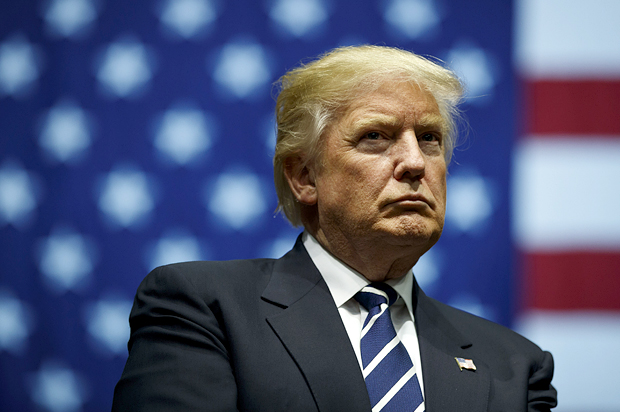Among other issues that drove conservative opposition to Donald Trump during the presidential campaign was the threat of tariffs on Chinese and other foreign goods.
During the primary, Sen. Marco Rubio and former governor Jeb Bush warned of the detrimental impact of slapping tariffs on China as high as 45 percent, as Trump had threatened during his campaign. (Now as president-elect Trump has called for a 35 percent tariff on Mexican goods, a punitive response to American firms shipping jobs down South.) Rubio pointed out that tariffs would jack up the price of goods, hurting consumers, particularly the American middle class.
And that’s just for the transactions that would still take place; many others would be aborted, triggering economic deadweight loss. Bush warned about the likely Chinese retaliation against tariffs, triggering a trade war or perhaps something even worse.
As The Economist has reported China is now America’s largest trading partner, and if Trump follows through with his proposals, other countries would probably retaliate. The Peterson Institute for International Economics, a Washington-based think tank (that partners with Moody’s Analytics, a subsidiary of my former employer, Moody’s Corp.), estimated in September that following a Trump-inspired trade war, American private-sector employment would decline by 4.8 million jobs, more than 4 percent, by 2019.
Peterson found that if Trump raises global tariffs, export-dependent U.S. industries that manufacture machinery used to create capital goods in the information technology, aerospace and engineering sectors would be the most severely affected. But that would be just the beginning. The ripple effect of a shock resulting from Trump’s proposed trade sanctions would also damage sectors not engaged directly in trade, such as businesses involved with wholesale and retail distribution, restaurants and temporary employment agencies.
“Millions of American jobs that appear unconnected to international trade — disproportionately lower-skilled and lower-wage jobs — would be at risk,” the authors concluded. “Pulling out of the [Trans-Pacific Partnership] as both [presidential] candidates [in the final election] promise to do, would weaken U.S. alliances in Asia and embolden its rivals, thus eroding U.S. national security. . . . abrogation of NAFTA, as Trump threatens, would deliver a severe blow to Mexico’s economic and political development that could increase, not decrease, the flow of illegal migrants and drugs into the United States.”
Trump’s bellicose approach to trade isn’t reflective of how most Americans feel about global economic exchange. According to Gallup polling in February, 58 percent of all Americans surveyed view foreign trade as an opportunity for the United States, and just 34 percent view it as a threat. That’s a change from 1992 (two years before NAFTA took effect), when 44 percent of Americans saw foreign trade as an opportunity and 48 percent viewed it as a threat.
What’s interesting is that Trump does appear to channel frustrations held by many Republicans since the Great Recession. Republicans used to typically view foreign trade as an opportunity more than Democrats did, but during and after the financial crisis, the roles reversed. This year, Gallup reported that 63 percent of Democrats view trade as an opportunity while just 50 percent of Republicans do.
Thankfully, on Capitol Hill, it appears that cooler heads are prevailing on tariffs. Republican Rep. Kevin Brady of Texas, who is chairman of the House Ways and Means Committee that has jurisdiction over tax and tariff policies, wants to focus on helping American businesses rather than punishing foreign ones — and, by extension, American consumers.
“Trump seems to be keen on tariffs, but Brady brushes aside the idea,” Politico reported this week. “He’s focused on tax reform and a health care overhaul.”
In an interview with Politico, Brady acknowledged that Trump “has hit a key point. America wants change. And they want a change in the way they see every month a new company looking to move — maybe every week — something overseas. Jobs. Headquarters. Research. Innovation.”
Brady added, “His point is there should be real incentives to create jobs in America. Our tax reform blueprint goes even further in the sense [that] it creates those incentives to bring that investment and research back to the United States, which is where he wants to go as well.”
Many economic scholars argue that the Smoot-Hawley Tariff Act contributed to and exacerbated the Great Depression. Let’s hope Trump’s economic advisers don’t let history repeat itself.

